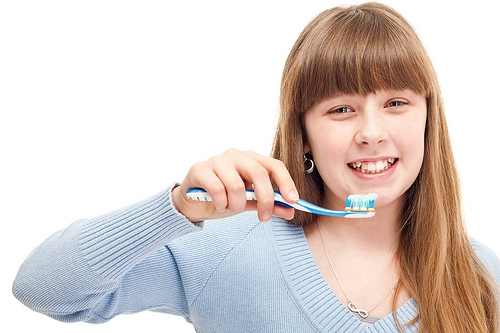Teeth Grinding: Not just a bad habit, but a dental concern
January 17th, 2014

Perhaps you don't even know you grind your teeth. Maybe a spouse or loved one woke you up in the middle of the night and made you aware of what was happening.
For many people, teeth grinding is a habit and a mechanical reflex; when they’re awakened and informed they were grinding their teeth, they have no recollection of it at all. According to the American Dental Association, this is the nightly situation for roughly ten percent of Americans. From young children to the elderly, teeth grinding, known in the dental community as bruxism, is a serious concern.
Many people who grind their teeth in their sleep have no idea they're doing it. In fact, when they wake up in the morning they feel no jaw pain and their teeth are fine: if it hadn’t been for someone telling them about it, the teeth grinding would have gone unnoticed.
There are other people, however, who wake up with jaw pain, shoulder and neck pain, and headaches. Teeth grinding can cause a host of dental complications. From cracked teeth and receding gums to a misaligned jaw, teeth grinding is not something to take lightly.
Preventive measures are the key to combating bruxism, and a visit to Nelson Family Dentistry can set you on the path to a healthy and safe night sleep.
The Reasons for Teeth Grinding
There are many reasons for teeth grinding. For some people, it’s a habit they acquired when they were a child and never grew out of. On the other hand, some research claims that the condition is related to stress, anxiety, or some other type of psychiatric issue.
Still other studies point to everything from poor muscle control or over-eating before bed to gastro-esophageal issues. However, the root cause of the teeth grinding is less important than identifying preventive measures against it.
Common solutions to teeth grinding include:
- Wearing a protective nightguard
- Stress management techniques
- Medications and muscle relaxers
When you make an appointment with Dr. Scott Nelson, Dr. Kevin Kooiker and Dr. Joe Williams at our Zeeland, MI office, we will assess your situation and determine what the best course of action is. Teeth grinding is a dental concern that can cause serious health issues down the road, so be sure to take preventive measures today.

 Patient Login
Patient Login




 Back to top
Back to top Website Powered by Sesame 24-7™
Website Powered by Sesame 24-7™